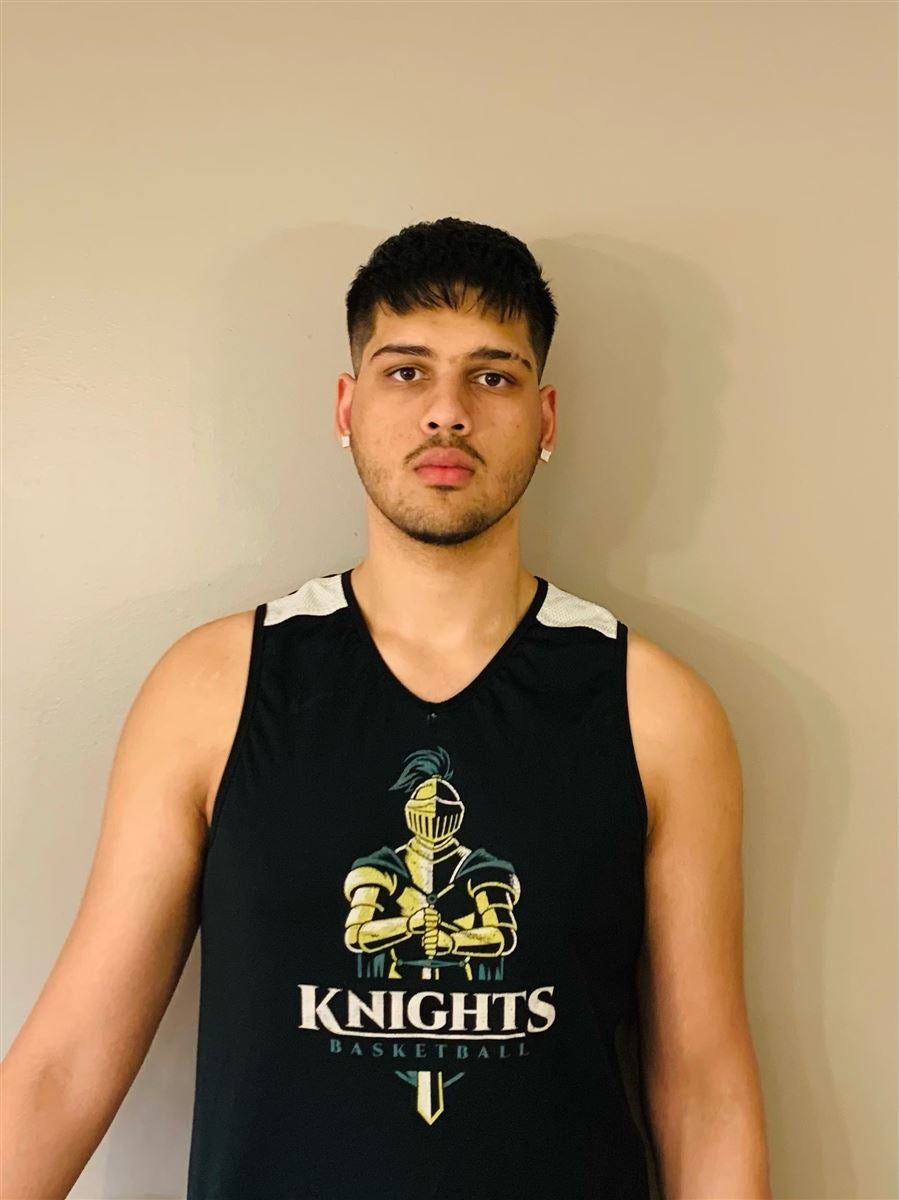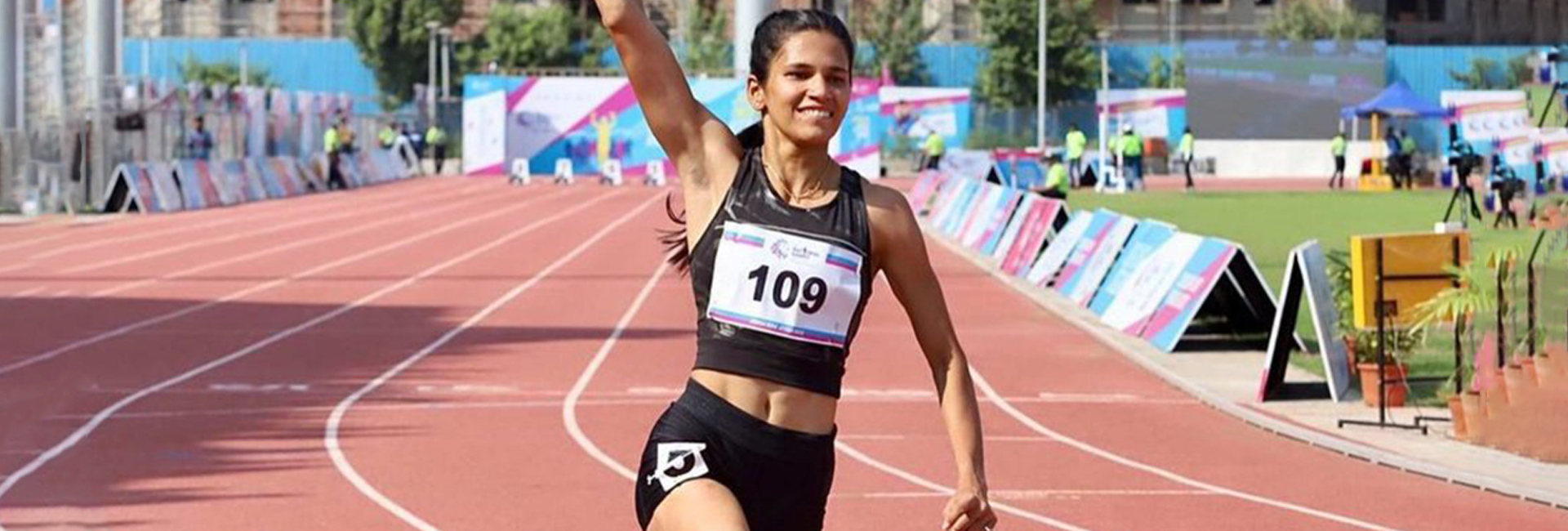(March 29, 2023) On his first day in the gym at the New Jersey-based Monmouth University, his basketball coach King Rice played Mundian toh bach ke rahi, a song by Panjabi MC, to welcome Amaan Sandhu. “I was like damn! These guys know my song! That was pretty cool. It really made me feel welcome,” said the Mohali native, who has scripted history by becoming the first male Indian basketball player to commit to an NCAA Division 1 college. It is the highest level of collegiate basketball in the USA and one of the prime recruitment pools for the NBA. Hailing from Punjab, Amaan’s ultimate goal is to make it to the NBA.

Amaan Sandhu
Coming from a family of basketball players where his father played for the national team and his mother played for Punjab, growing up, he also saw his older sister play for the U-18 Indian team. This got him interested in the sport, and by the age of 13 when he was already 6 foot 7, he was scouted by the NBA India Academy located in Greater Noida in 2018. In the following years, he participated in three Basketball Without Borders (BWB) camps, including BWB Asia 2018 in India, BWB Asia 2019 in Tokyo, and BWB Global Camp 2020 in Chicago during NBA All-Star Weekend. He also represented NBA Academy India at the 2018 NBA Academy games in Canberra, Australia.
On the academy’s recommendation, he joined the First Love Christian Academy in Pittsburgh, USA in the fall of 2020. By the time he graduated, he started attracting the attention of many colleges in the US as he had already shot up to 7 feet in height.


But Amaan wasn’t always keen on college basketball as NBA was on his mind, always. However, in 2018, when he joined the NBA Academy and started taking basketball seriously, his coaches encouraged him to take up college basketball and that’s how he decided to go for it. However, his parents weren’t enthused about his decision and he had to convince them. “My parents didn’t know much about college basketball in the USA. So, I had to educate them on how that puts me one step closer to professional basketball. My parents played in the 1990s and 2000s so they have no idea about college basketball because Indian college basketball is really small, It’s not even close to what college basketball in the USA is like,” he told Sportstar.
The 19-year-old, who will have a chance to go to the league upon graduation, is keen to major in communication. For this Mohali boy, moving to the US was nothing less than a culture shock. “I ain’t gonna lie. I didn’t speak a word of English before I joined the NBA Academy in 2017. But that was the only way to communicate with my coaches who are all from the USA. I was like I can’t speak to my coaches if I can’t speak English. When I went to school in the states, I saw the way people speak and I picked it right up,” added the teenager, who felt welcomed in the US. Being the only Indian in the teams that he played for, he was happy to satiate the curiosity of the Americans who were keen to know more about him, his religion, and India.


For someone who dreams of playing in the NBA, getting selected into a college in the US was a great deal. “It was only when I came for my high school that I learnt there was nobody from India in Division One here. That motivated me to do well,” he said in an interview.
Amaan is the third player from the NBA Academy India to earn a Division I basketball scholarship, joining Sanjana Rnesha and Harsimran Kaur on the women’s side. ” I’m blessed with the opportunity. Like being the first India-born player and the first NBA India prospect to earn a D1 scholarship. It is definitely going to help me a lot.”
- Follow Amaan Sandhu on Twitter




